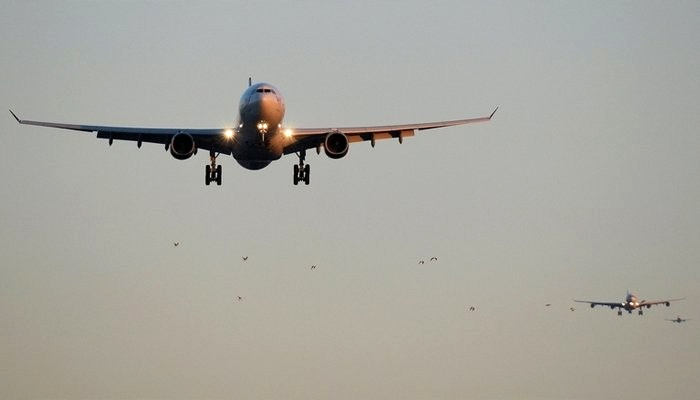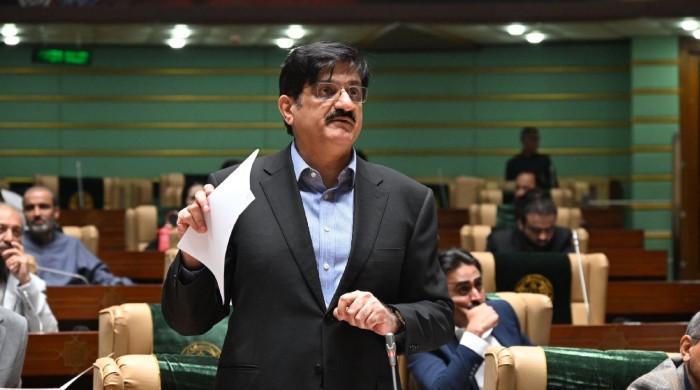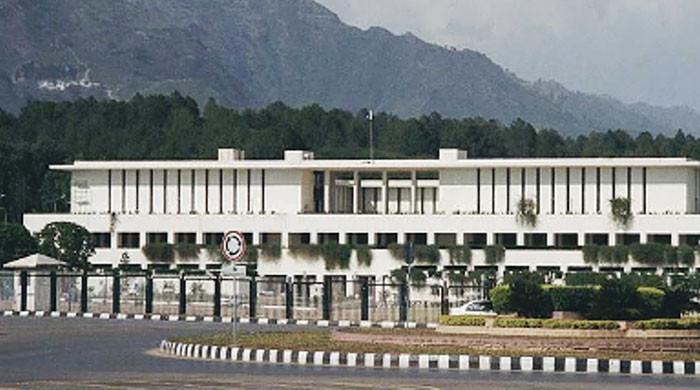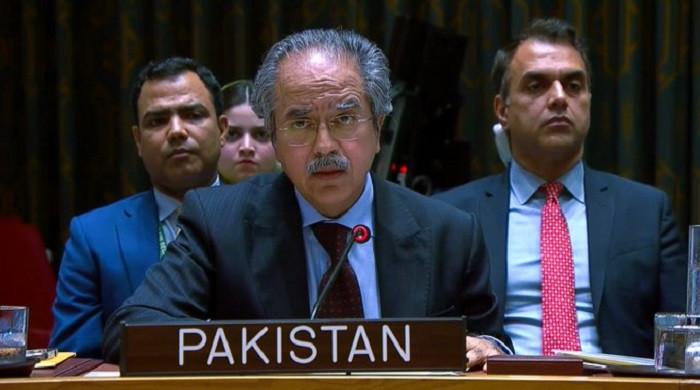Domestic flight operations to be enhanced to 40-45% of pre-coronavirus times: PCAA
Outbound international flight operations are to resume at midnight tonight, PCAA says
May 29, 2020

ISLAMABAD: Domestic flight operations were to be bumped up "from previous 20-22% to 40-45%" of the pre-coronavirus times, the Pakistan Civil Aviation Authority (PCAA) said Friday, hours after announcing that outbound international flight operations were to resume at midnight tonight.
"Decision has been taken due to growing business & public demand for air travel and smart lockdown being observed by the federal & provincial governments," the PCAA said on Twitter, adding that it was also the result of "people confidence due to best possible health precautions".
"The enhanced operation shall start from 1st June onwards and shall cover Islamabad, Karachi, Lahore, Peshawar and Quetta," it added.
Earlier in the day, the flights regulatory authority had announced that outbound international flight operations were set to resume tonight at 11:59pm at all airports with the exception of Gwadar and Turbat.
The development comes a couple of weeks after Prime Minister Imran Khan announced an ease in the coronavirus lockdown.
Foreign airlines can take off from Pakistan's airports
In a notice to airpersons (NOTAM), the PCAA said the development to allow foreign ferry flights (non-passenger planes) was "as per the decision taken by the government of Pakistan".
"All national and foreign carriers are permitted to start scheduled/non-scheduled and charter operations for outbound passengers only, with effect from May 29, 2020, 1900 UTC [12am local time, Saturday] from all international airports except Gwadar and Turbat airports," the notice added.
It mentioned that foreign airlines would be able to take off from Pakistan's airports with passengers.
"The restrictions on inbound passenger operations into Pakistan shall continue. However, special permission is required from government of Pakistan by national foreign carriers and charter operators for flights with inbound passengers on case-to-case basis.
Read more: Cockpit voice recorder of ill-fated PIA plane recovered from Karachi crash site
"Additionally diplomatic, special, and cargo flights to/from Pakistan shall also be permitted. All airlines shall adhere to the standard operating procedures [SOPs] for international passenger and charter flights," it added.
The notice also emphasised that the crew of foreign planes landing at Pakistani airports would not be allowed to disembark.
The move comes less than 10 days after Pakistan International Airlines (PIA) flight PK-8303 crashed in Karachi's densely-populated neighbourhood of Model Colony, leaving all but two people aboard dead.
Masks, hand sanitisers mandatory
Domestic flight operations had resumed in Pakistan from five major airports on May 16, as the country continued to gradually ease lockdown measures.
A PIA spokesperson had said the SOPs were strictly being observed to avoid the spread of the coronavirus. It was made mandatory for the passengers to wear masks and use hand sanitisers, they said, adding: "The airline is operating flights as part of its national duty."
Also read: Limited domestic flight operations resume as coronavirus lockdown eases
In a video statement, Aviation Minister Ghulam Sarwar Khan had said 20% of domestic flights would resume from Saturday but in a limited capacity. The announcement came following a final decision taken by the National Command and Operations Centre (NCOC).
'Opportunity to travel safely'
The five major airports allowed to restart operations included Karachi's Jinnah International Airport, Lahore's Allama Iqbal International Airport, Islamabad International Airport (IIAP), Quetta International Airport, and Peshawar's Bacha Khan International Airport.
Sarwar had said social distancing would be followed based on available seats and flights would only be allowed to fill 50% of their full capacity. "Passengers will be provided the opportunity to travel safely," he had added.











